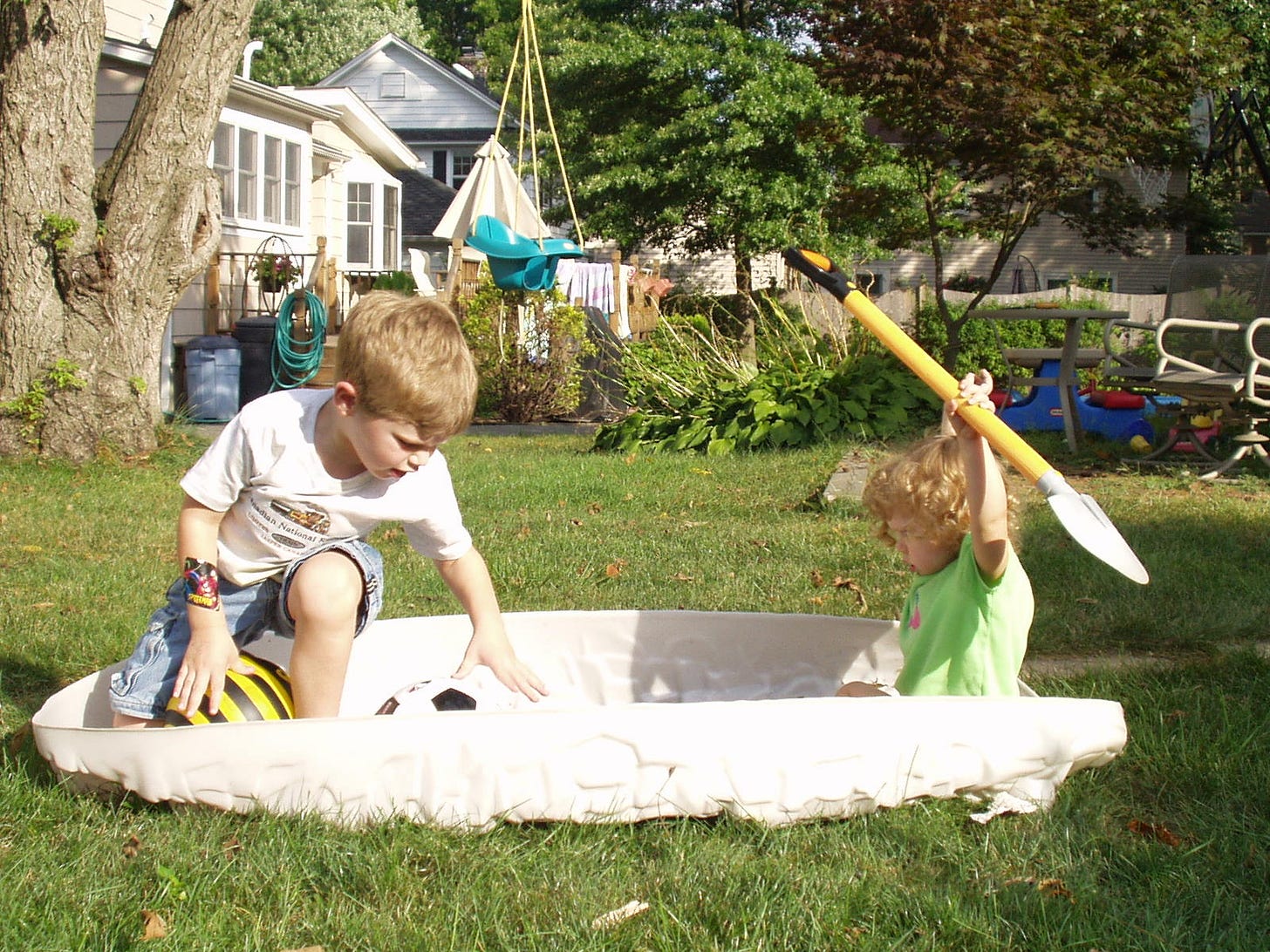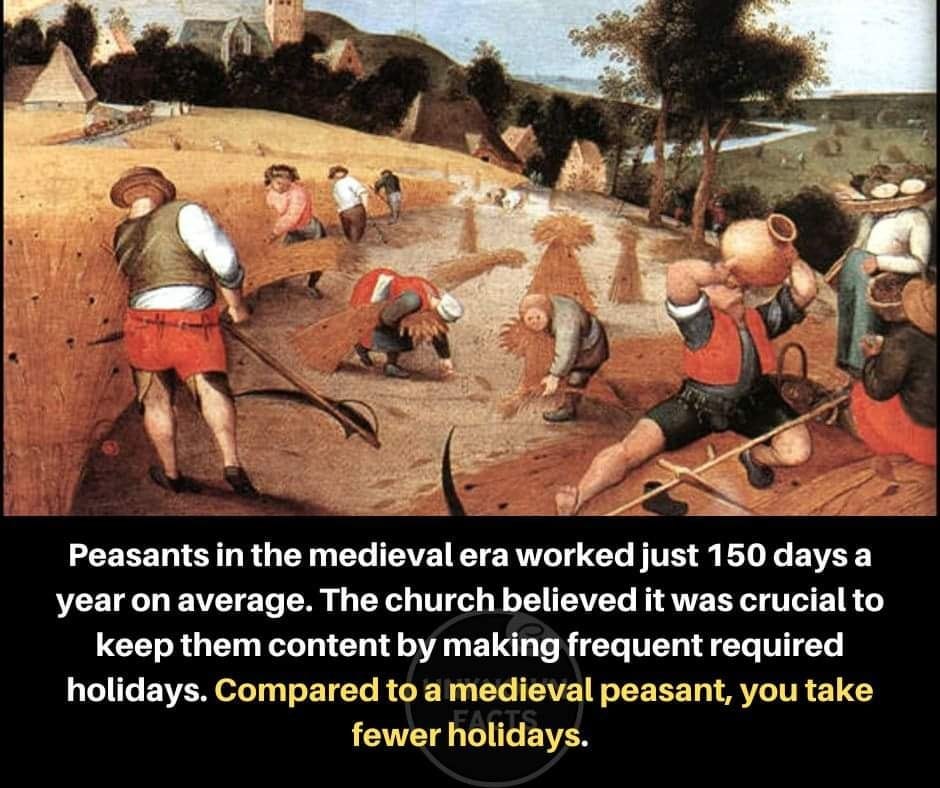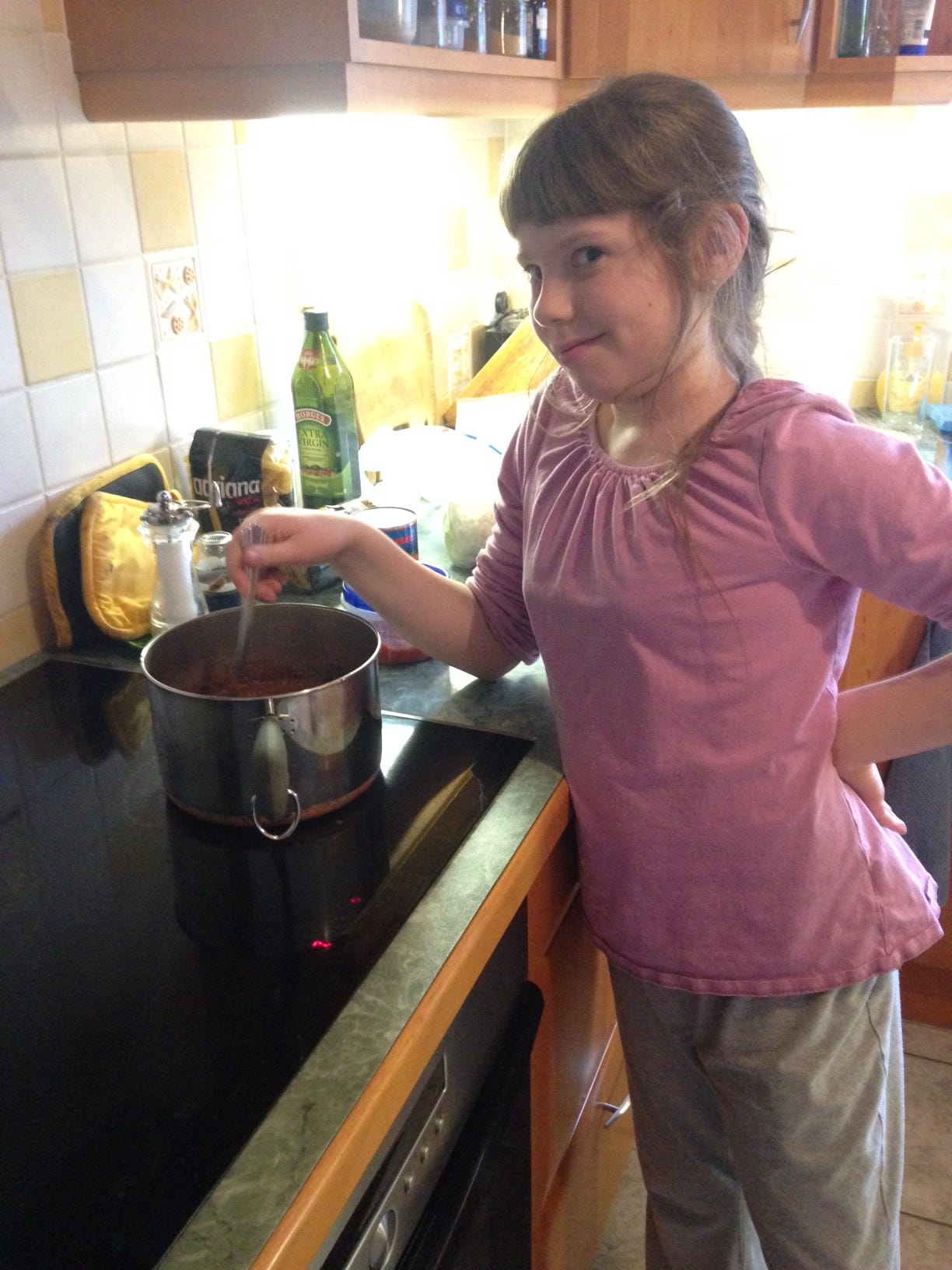First, some quick business: I have joined a choir (hooray!), which rehearses on Thursday mornings. So I am no longer able to tinker obsessively with my posts on Thursday mornings and have rejiggered the schedule a bit. Beginning next week, the Happy Wanderer will come out on Wednesdays instead of Thursdays. Now on to this week’s post.
Last week I wrote about Socrates, experts, and the importance of recognizing when we don’t know the answers. The first step to gaining knowledge is to acknowledge that we don’t know everything. This week I will discuss two societal changes I think most of us would want, but it’s hard to know how we could bring them about. This post is full of questions! I hope to inspire readers to think about how we can cooperate to make all our lives better.
The Prisoner’s Dilemma and Us
Readers are probably already familiar with the Prisoner’s Dilemma, but here’s a quick description: Two suspected burglars—call them Bob and Doug—are arrested and put in separate rooms for questioning. Each prisoner has a choice. He can stay silent, or he can claim innocence and rat out his partner.
If both prisoners stay silent, both will be sentenced to one year in prison.
If both prisoners rat each other out, both will get five years.
If Bob rats out Doug, but Doug stays silent, then Bob goes free and Doug gets ten years—and vice versa.
Should Bob and Doug cooperate and stay silent, or should they rat each other out? The best overall solution is for both prisoners to stay silent and cooperate. Unfortunately, the best selfish solution is to be the ratter-outer in the hopes of getting off scot-free. The Prisoner’s Dilemma challenges us to work together rather than to take a small advantage for ourselves, at the cost of making things worse for other people.

Once we start thinking about social problems in terms of the Prisoner’s Dilemma, we see examples everywhere. Calvin doesn’t want to do the “hard work” of shoveling the walk so everyone else can enjoy it safely. People who go through the express lane at the grocery store with more than the allowed number of items in their cart are saving themselves time but slowing the line down for everyone else. And, as I have griped before, people who don’t check their bags but drag them onto planes and attempt (and sometimes fail) to stuff them into the overhead compartment are saving themselves a wait at baggage claim but slowing down the boarding and deplaning processes for everyone else.
Some cases, like the above examples, can be resolved through simple rule changes1 or through social enforcement of the rules that currently exist—scowling at grocery-store scofflaws, for example. But what about situations where people have very good reasons for acting as they do, and where cultural change can only come about through personal sacrifice? Below are two examples of “nice things” that are totally normal in Switzerland and the Czech Republic and that would be great to have in the US too, if only we could all agree to give something up to make them possible.
A Sabbath
Paradise exists, right here on earth, and it happens every week, on Sundays in Switzerland. With the exception of hospitals, emergency pharmacies, a few tourist restaurants, and minimarts at gas stations,2 all businesses in Switzerland close around 5pm Saturday and reopen Monday morning. They also close down for several holidays per year. Almost no one has to work on Sundays and holidays, and no one shops or runs errands either. In fact, even chores like laundry, yard work, or other noisy projects are frowned upon. Those days are for spending time with family, and so every Sunday and holiday, families gather for a special lunch, followed by a nap or an active excursion into nature. I love our Sunday walks along the river in summer, where you can see extended families enjoying a cookout as the children play in the water and dogs splash around, or our hikes in the mountains3 surrounded by families of hikers, sledders, and skiers. The sabbath gives people a chance to relax, reconnect, recharge, and recreate, and all without spending money. The result is a healthier and happier population.

Wouldn’t it be wonderful to have a break like this in the US? But, as Judith Shulevitz points out in this (highly recommended) interview with Ezra Klein, in order for a sabbath to work to “create meaning,” we all need to cooperate as a culture. If only a few of us take this time out of our hectic schedules, we will be the weirdos and the outsiders, left out of the frenzied activity that is normal for everyone else. Shulevitz says that we need a “giant mutual noncompete clause” before we can have this weekly time of meaning and peace. But how could we even begin? It’s one thing for a country with an official state religion to declare Sunday the sabbath, but that would never fly in the religiously diverse US. And even if we could agree on a day, how willing would we all be to give up the convenience of being able to shop whenever we want?
There are financial incentives to keep things the way they are too. To be competitive, businesses need to stay open on Sundays and holidays—even Black Friday, Thanksgiving afternoon, New Year’s Day, Easter, and July Fourth. Any company that unilaterally decided to close on Sundays and holidays would go out of business. But as a result, retail workers have to work on those days, and the rest of us busy folks have an incentive to spend the weekend taking care of shopping, activities, and errands we don’t have time for during the week. We’re stuck.
Free-Range Kids
A few weeks ago, a concerned grandma wrote in to the Social Q’s column at the New York Times, worried that her nine-year-old granddaughter was walking a few blocks home from school alone. The grandma viewed the presence of “gardeners, painters, and delivery people” along the way as a threat and wanted to hire a babysitter for the short walk. Not only are the grandma’s fears about working people classist,4 but her anxieties are terrible for her granddaughter. GenXers like me remember our childhoods fondly, when we were trusted to walk home with friends and allowed to play freely with kids in our neighborhoods. As the child psychologist Alison Gopnik says in this interview, children throughout history have learned about the world, and about how to negotiate and get along with other people, through unsupervised free play in large mixed-age groups of kids. The movement for free-range kids aims to restore to our helicoptered, overscheduled, and anxious kids the freedom, independence, and responsibility that were normal a generation ago.
A paradise of free-range kids exists right here on earth, in Prague, where our family used to live. Neighborhood streets and parks there are filled with kids playing wide-ranging, imaginative games or racing around on their bikes, all without being nervously monitored by parents. Children as young as six take public busses to school, accompanied not by a parent but by friends or older siblings, and watched over by affectionate babičkas.5 When we first moved to Prague, our kids’ school required our fourteen-year-old son to figure out how to travel around the city on public transportation on his own, and when my parents visited a month later, he took great pride in conducting my dad around the city on the subway. Our eleven-year-old daughter loved heading out by herself to the local grocery store (where, it bears mentioning, no one spoke English) to pick up ingredients for recipes she had created—and then to cook for us without any bossy supervision from me. Kids thrive when we expect them to take responsiblity for themselves.
Why can’t American kids be free-range too? Aren’t we Americans supposed to be intrepid and independent? One major change since the eighties is the unwarranted moral panic over stranger danger. Some people, like the grandma mentioned above, are inordinately afraid that unless children are surveilled every waking moment, they will be kidnapped. On the other hand, parents who want to let their kids be independent risk having the police and Child Protective Services called on them, so it is a rational choice for them to demonstrate to others that they are supervising their kids at all times.
Another obstacle to free-range kids is overscheduling. Kids can only play together freely and in large, mixed-age groups if there are other kids in the neighborhood who are available to play with them. But in the US, the long working hours demanded of parents puts families under pressure to fill their kids’ free time with classes, sports, volunteering, and other arranged activities. It’s a vicious circle: If every child in the neighborhood is scheduled into activities after school and on weekends, the only way kids can play with other children is to sign up for those activities too. And should our kids have an open afternoon, they can’t just run outside and find a friend. We parents need to round up other kids who have a free slot in their schedule and orchestrate play dates.
I’m not pointing fingers, because when we lived in the US, we got caught up in the activities whirlwind too. Even though I wanted very much for my kids to enjoy the same freewheeling, spontaneous, day-long imaginative neighborhood games of my childhood, I knew that the only way they would get to see other children was in the classes and play dates I duly arranged for them.

A final obstacle to a culture of free-range kids—which is unique to the US—is the need to build up a resumé of activities for college applications. In Europe, extracurricular activities aren’t a factor in admission to universities and apprenticeships, and so participation in these activities is much less common than in the US and is driven by interest and talent rather than by necessity. What would happen if US students were to say, “You know, we’re all feeling so much stress about soccer (and band, and student government, and the musical, and science olympiad, and all the rest). Maybe we can just focus on the one or two activities we really love and drop the others?” College admissions officers would eventually adapt and relax their criteria. But someone has to be the first one to take the hit to their college resumé.
I don’t believe it is inevitable that we all must be prisoners of this dilemma, caught in this vicious circle. It is possible for us, as individuals, to choose to take one day a week to spend time together, to let our kids drop a few activities, to send them out into the fresh air to explore, and maybe to join them for a peaceful ramble. But it will take more than individual action. We need worker protections and legislative action to relieve the economic pressures on families, pressures that are keeping us from rest, play, exploration, and each other.
What do you think, readers? How do we balance individual interests and the good of all? Do you have any ideas? And what are some other examples you’ve noticed of the Prisoner’s Dilemma exerting a malevolent influence on society? Please share your thoughts in the comments!
The Tidbit
Speaking of Prague, before we moved overseas, I bought a little Czech-English dictionary to get started on learning the language. In the middle of the book was a collection of sample sentences in both Czech and English versions. This was not a phrase book; these sentences were not at all useful for activities of daily life. Instead they seemed to be drawn from a story of doomed lovers or a film noir script. I put some of my favorites together to make a found poem:
Doomed Lovers in the Dictionary: A Found Poem
My fingers met with hers.
I have been working the whole night.
She has been crying the whole afternoon.
He took her pen before she had written a single word.
She is finding fault with me all the time.
Who has been lying in my bed?
We are being bombarded.
Isn’t she hiding there?
We’ll wait until they call.
We’ll do it before he arrives.
The one who finds it will be a lucky man.
When I entered she was reading my letters.
As I was taking a shower somebody knocked.
He was holding a gun.
They were trying to get inside.
He goes to the car but it explodes.
She picks up the phone but there is no answer.
Wind carried the sound to me.
As I argued in the linked essay, I think airlines should charge for carry-on and make checked baggage free.
These minimarts offer a surprisingly good selection of such grocery items as organic yogurt and milk, limes, ginger root, kale, fresh herbs, bakery bread, an astonishing variety of fine chocolate, and wine and beer. I discovered this one year when we returned from vacation on January 2. I headed to the grocery store to stock up and learned the hard way that January 2 is a national holiday, and so the store was closed. Luckily for me and about a dozen other vacation-returners who headed over to the minimart too, the minimart sells everything you need to cook a sumptuous dinner.
A fun fact about Niesen: The longest stairway in the world runs up Niesen’s side, and every year there is a race, the Niesen Treppenlauf, straight up the 11,674 steps to the top. I’ve taken the funicular halfway up and hiked the rest of the way to the top, which was plenty! I can’t imagine running the whole way!
In fact this letter was so over the top that I wonder whether it is fake. At least I hope it is!
“Babička” means “grandma,” but it also refers to any older lady who takes a friendly, helpful interest in the goings-on in her neighborhood.






The "free range kids" issue is so important, from a parent's perspective. It was simply the way things worked for my (boomer) generation, but also my dad's and probably all earlier generations. I think there's really two big factors here. We gave our two daughters freedom/permission to roam, but also we decided to live in a place where lots of roaming on foot or bike was possible—a university town in the upper midwest.
I grew up in suburban Atlanta, back when our new house was on the suburban fringe. So much undeveloped wooded land surrounded our neighborhood! I would be gone all day on weekends and throughout the summer. Today, that neighborhood is considered an inner-ring suburb, and all that undeveloped land has turned into fenced-off apartments and office parks. The two-lane collector streets are now major arterials that are four to six lanes wide, and traffic has increased by an order of magnitude. A child raised today in the house I grew up in would have no place to go on foot or bike.
Advice to parents of young children: move someplace where your kids can be set free. It will make a huge difference in their development in terms of self-confidence, creative problem-solving, and general independence.
We live in a mixed-income neighborhood, and we have much more opportunity for free ranging kids. The overscheduling of kids is very much an upper-middle class issue. Kids in the neighborhood is truly one of the reasons we haven't pursued moving anywhere.